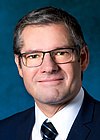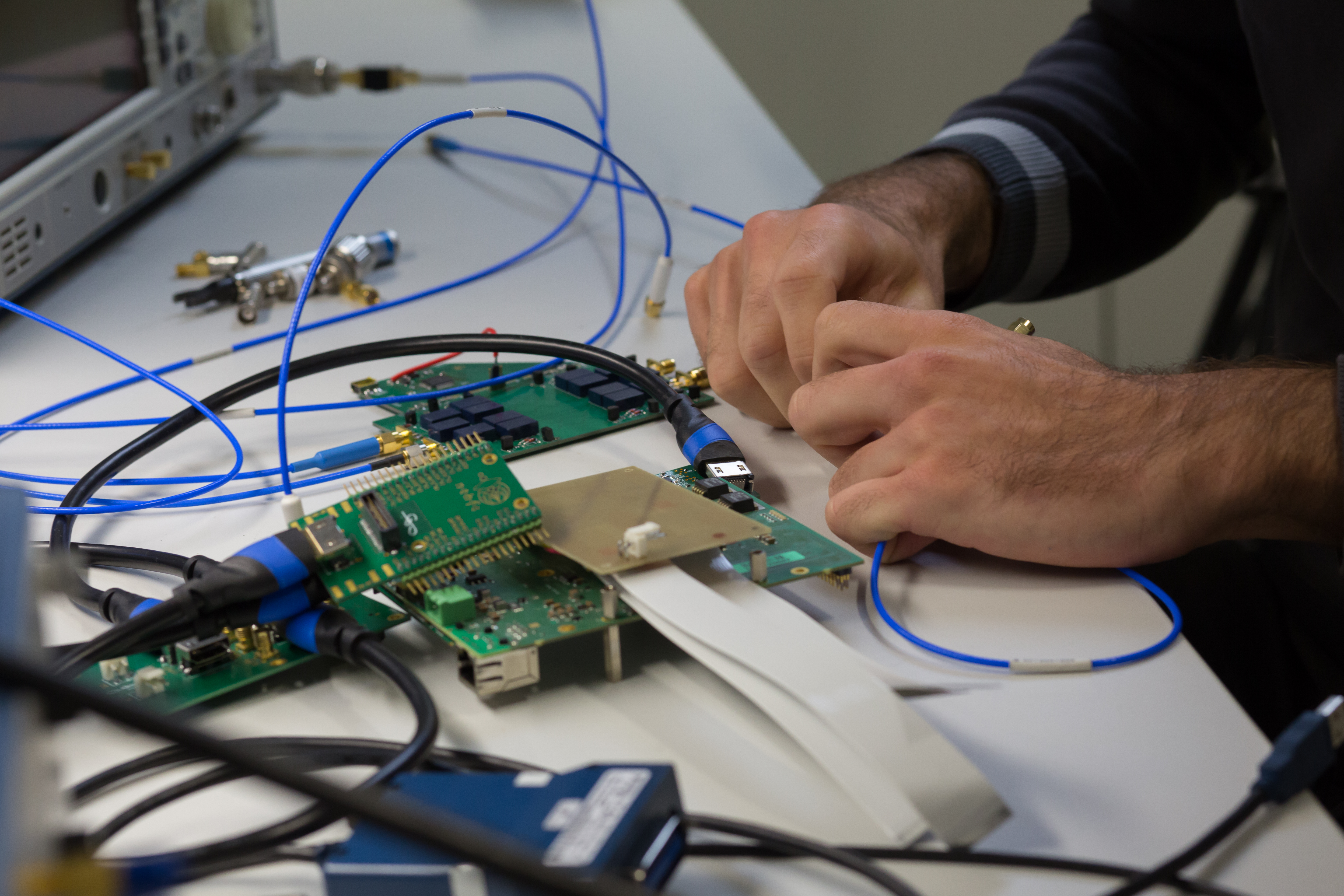CD Laboratory for Digitally Assisted RF Transceivers for Future Mobile Communications
Head of research unit

Commercial Partner
Duration
01.01.2024 - 31.12.2024
Thematic Cluster


This CD Laboratory explores digital signal processing methods to meet the increasing demands on integrated circuits for future 5G/6G mobile communication systems in terms of design complexity, performance, interference suppression and power consumption.
Today's semiconductor technology, known as complementary metal-oxide-semiconductor (CMOS) technology, is already able to make excellent use of digital signal processing methods. In transceivers (combined radio systems consisting of transmitters and receivers), configurable filters, digital computing units, pre-distortion and adaptive concepts can be used to reduce the demands on the analogue blocks and compensate for non-idealities of the CMOS radio-frequency circuits. The further development and miniaturisation of CMOS technology will enable the implementation of even more powerful signal processing algorithms in the future, while at the same time reducing energy consumption and chip area. Together with the fact that CMOS technology has sub-optimal radio-frequency characteristics, this will further drive the use of digital signal processing in future transceiver chips. Challenges for mobile 5G/6G devices such as smartphones or tablets are in particular increasing bandwidths and data rates as well as the increasing number of transmit and receive paths, resulting in a dramatic increase in complexity. For future applications in the area of the Internet of Things, in turn, parameters such as energy consumption, chip area and latency times will pose enormous challenges.
This CD Laboratory is concerned with application-oriented basic research into methods of digital signal processing in radio-frequency transceivers of mobile devices. Research focuses on the suppression of interference in receivers, optimisation of transmitters in terms of architecture, performance and power consumption, the further development of digital phase-locked loops, as well as joint communications and sensing algorithms and architectures.
The most important results of the research work in this CD Laboratory are digital signal processing methods for future generations of highly integrated transmitters and receivers in mobile phones and the Internet of Things. These methods are intended to reduce the demands on the analogue circuit blocks and enable overall solutions with the highest reception quality on the one hand and minimal energy consumption on the other for future transmission standards with drastically increased data rates. The results of this CD Laboratory will also make valuable contributions to the development of the fifth and sixth generation of mobile phones.

Christian Doppler Forschungsgesellschaft
Boltzmanngasse 20/1/3 | 1090 Wien | Tel: +43 1 5042205 | Fax: +43 1 5042205-20 | office@cdg.ac.at

